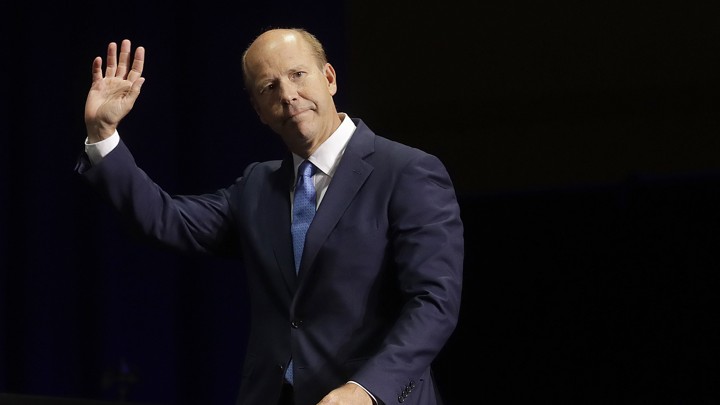
The 2020 U.S. Presidential Race: A Cheat Sheet
by https://www.facebook.com/david-a-graham-318249352182, David A. GrahamJohn Delaney ends the presidential campaign more or less the way he started it: in obscurity and in Iowa.
Friday morning, three days before the Iowa caucus, the former Maryland congressman announced he is leaving the presidential race. He had spent much of his time and energy during his 918-day campaign on the ground in the Hawkeye State, hoping to inspire grassroots excitement. It didn’t work.
Delaney was the first candidate to enter the race, in July 2017, and he outlasted many of the other long shots in the Democratic field—as well as a few candidates who seemed to have more promise, like Senators Kamala Harris and Cory Booker. Delaney never achieved the popularity of Harris or Booker—the RealClearPolitics average places him at the very back of the pack, behind even Michael Bennet and Deval Patrick—and you’d be forgiven for not realizing he was still in the race. Once Delaney dropped off the debate stage, he basically disappeared from national coverage.
“I leave this race with a profound sense of gratitude to the voters who shared with me their hopes and concerns for our magnificent country, in admiration for the other contenders for the nomination and proud of the work we did to change the debate,” Delaney said in a statement.
The claim of changing the debate is dubious, but Delaney’s central intuition that Democratic primary voters were interested in moderation has proved largely correct. Earlier in the campaign, that view seemed quaint. Not only were Senators Elizabeth Warren and Bernie Sanders major contenders, but even moderates like Booker and Harris were edging leftward, embracing concepts like Medicare for All. While some Democrats worried that unabashed progressives would struggle in a general election, the consensus was that primary voters demanded a more left-leaning party.
Delaney was a gadfly in early debates, pouring cold water on proposals for big government-spending programs, especially on health care: The people wouldn’t pay for them, Delaney argued, and even if they did, they wouldn’t work. Because of his willingness to tut-tut his rivals, debate moderators loved Delaney and gave him disproportionate TV time; Warren used him as a foil, too. But eventually he faded, in part because he wasn’t as interesting as some of the other also-rans (hello, Marianne Williamson; ¿como estás, Beto?), no matter how swole he got.
As Delaney faded, however, his political orientation has survived and thrived. Sanders is in strong position as the Iowa caucuses approach, but there’s little denying a moderate appetite among many Democrats. Joe Biden remains the national frontrunner, and he has staked out a more centrist approach, especially on health care. So has Pete Buttigieg, another moderate standard-bearer near the top of the race. Warren has toned down her health-care talking points but faded anyway. Michael Bloomberg is surging, and while his politics are idiosyncratic, like Delaney, he is running on a fiscally conservative platform.
Delaney wasn’t the moderate savior he hoped to be, but he may turn out to have been something of a harbinger who brought prophecies of a moderate resurgence. If he couldn’t turn that into popularity, well, no prophet is accepted in his home town—or in Iowa, apparently.
As the primaries progress, this cheat sheet will be updated regularly.
The Democrats

MICHAEL BLOOMBERG
Who is he?
The billionaire former mayor of New York, Bloomberg is a Democrat turned Republican turned independent turned Democrat again.
Is he running?
Yes. Having ruled out a run in March, hizzoner changed his mind in early November and officially launched his campaign on November 24.
Why does he want to run?
For starters, he is convinced that he’d be better and more competent at the job than anyone else. Bloomberg’s bid will likely center on his pet issues of gun control, climate change, and fighting the more fiscally liberal wing of the Democratic Party tooth and silver-plated nail.
Who wants him to run?
What, is his considerable ego not enough? Though his tenure as mayor is generally well regarded, it’s unclear what Bloomberg’s Democratic constituency is beyond other wealthy, socially liberal, and fiscally conservative types, and it’s not as if he needs their money to run.
Can he win the nomination?
Probably not. Bloomberg previously toyed with an independent run, but said that would only help Trump in 2020.
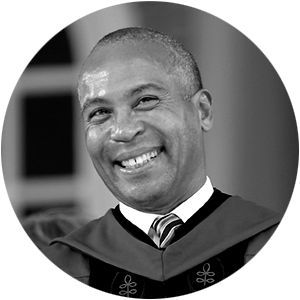
DEVAL PATRICK
Who is he?
Patrick was governor of Massachusetts from 2007 to 2015, after serving in a top role in Bill Clinton’s Justice Department. More recently, he’s worked at Bain Capital.
Is he running?
Yes. Patrick officially entered the race on November 14.
Why does he want to run?
To be president, of course. But having passed on a run earlier, Patrick reconsidered because of worries that no one in the Democratic field has strong momentum and can unite the party.
Who wants him to run?
There’s an appetite for new candidates among some in the Democratic donor class, though there’s little sign that voters are so eager. Patrick is close to Barack Obama, but the former president has stayed out of the primary.
Can he win?
We’re not saying that a former Massachusetts governor and Bain employee can’t win the presidency, but recent history isn’t encouraging. But take it from Patrick: “I recognize running for president is a Hail Mary under any circumstances. This is a Hail Mary from two stadiums over.”
What else do we know?
Patrick’s estranged father played in the alien jazz great Sun Ra’s Arkestra.

TOM STEYER
Who is he?
A retired California hedge-funder, Steyer has poured his fortune into political advocacy on climate change and flirted with running for office.
Is he running?No. He announced on January 9 that he would sit the race out. Lol jk! Steyer decided to get back into the race on July 9 after all.
Why does he want to run?
Impeachment, baby.
Who wants him to run?
There must be some #Resistance faction out there that does.
Can he win the nomination?
Nope.

MICHAEL BENNET
Who is he?
The Coloradan was appointed to the Senate in 2009 and has since won reelection twice.
Is he running?
Yes. Bennet announced his campaign on May 2.
Why does he want to run?
Like his fellow Rocky Mountain State Democrat John Hickenlooper, Bennet presents himself as someone with experience in business and management who knows how to work with Republicans.
Who wants him to run?
Probably some of the same people who wanted Hickenlooper to run. Bennet gained new fans with a viral video of his impassioned rant about Ted Cruz during the January government shutdown.
Can he win?
No.
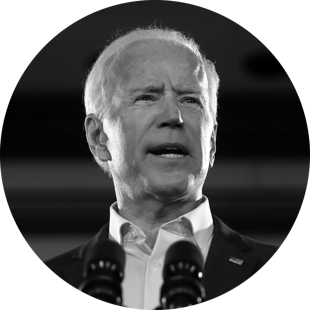
JOE BIDEN
Who is he?
Don’t play coy. You know the former vice president, senator from Delaware, and recurring Onion character.
Is he running?
Yes. After a long series of hesitations, Biden announced his campaign on April 25.
Why does he want to run?
Biden has wanted to be president since roughly forever, and he thinks he might be the best bet to win back blue-collar voters and defeat President Trump in 2020. (Trump reportedly agrees.) But Biden seems reluctant to end his career with a primary loss, knows he’s old (he’ll turn 78 right after Election Day 2020), and is possibly out of step with the new Democratic Party.
Who wants him to run?
Biden has established a strong lead in the Democratic primary, but his shaky performance in the first debate showed he’s not invincible.
Can he win the nomination?
Yes. Biden has been battered by the campaign, but he remains atop polling averages.
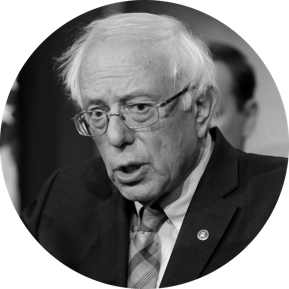
BERNIE SANDERS
Who is he?
If you didn’t know the Vermont senator and self-described democratic socialist before his runner-up finish in the 2016 Democratic primary, you do now.
Is he running?
Yes. Sanders announced plans to run on February 19.
Why does he want to run?
For the same reasons he wanted to run in 2016, and the same reasons he’s always run for office: Sanders is passionate about redistributing wealth, fighting inequality, and creating a bigger social-safety net.
Who wants him to run?
Many of the same people who supported him last time, plus a few converts, minus those who are supporting Sanders-adjacent candidates like Elizabeth Warren or Tulsi Gabbard.
Can he win the nomination?
He could, but right now he hasn’t figured out how to get past Warren and Biden.

AMY KLOBUCHAR
Who is she?
She has been a senator from Minnesota since 2007.
Is she running?
She announced plans to run in Minneapolis on February 9.
Why does she want to run?
Klobuchar represents a kind of heartland Democrat—progressive, but not aggressively so—who might have widespread appeal both in the Midwest and elsewhere. She’s tended to talk vaguely about middle-class issues.
Who wants her to run?
She’d probably build a constituency among mainstream Democrats. Her exchange with Justice Brett Kavanaugh during his confirmation hearing won her a lot of fans.
Can she win the nomination?
The odds look longer by the day.
What else do we know?
Sadly, she is not using this fly logo.
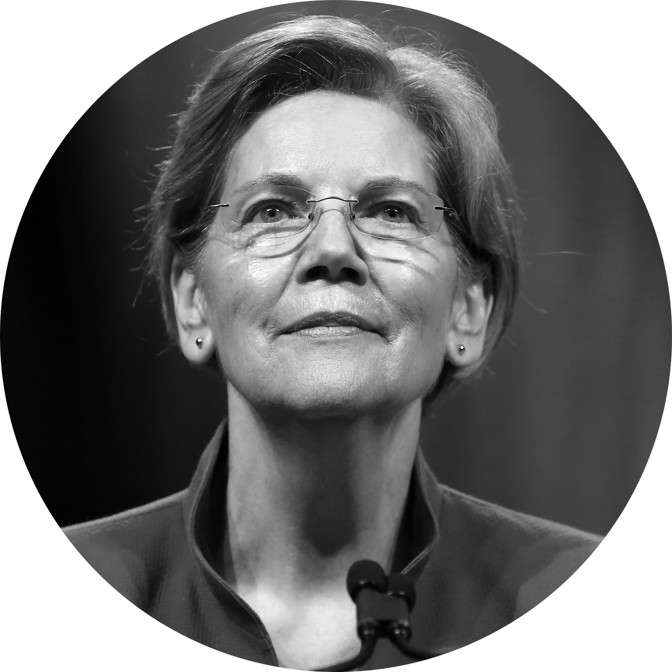
ELIZABETH WARREN
Who is she?
A senator from Massachusetts since 2013, Warren was previously a professor at Harvard Law School, helped create the Consumer Financial Protection Bureau, and wrote a book on middle-class incomes.
Is she running?
Yes. She kicked off her campaign on February 9.
Why does she want to run?
Warren’s campaign is tightly focused on inequality, her signature issue since before entering politics. She has proposed an “ultra-millionaire tax” on people worth more than $50 million and a major overhaul of housing policies.
Who wants her to run?
People who backed Senator Bernie Sanders in 2016; people who were Bernie-curious but worried he was too irascible; people who didn’t like Bernie but are left-curious; Donald Trump.
Can she win the nomination?
There’s a good chance. Warren catapulted into the top tier of the race and seemed to be Joe Biden’s major rival for the nomination, but faded somewhat in the last weeks of 2019.
What else do we know?
She’s got a good doggo.
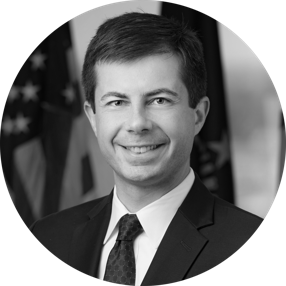
PETE BUTTIGIEG
Who is he?
The 37-year-old openly gay former mayor of South Bend, Indiana, and Afghan War veteran has gone from near-anonymity to buzzy-candidate status in his first couple of months in the race.
Is he running?
Yes. He officially launched his campaign on April 14.
Why does he want to run?
Buttigieg’s sell is all about generation. He’s a Millennial and thinks his cohort faces new and unusual pressures and dilemmas that he is singularly equipped to resolve. Plus, it’s a useful way to differentiate himself from the blue-haired bigwigs in the blue party.
Who wants him to run?
Buttigieg has slowly climbed in the polls, grabbing attention for crisp answers and an almost Obamaesque demeanor; he has the support of some Obama alumni. He hopes to reach midwestern voters who deserted the Democrats in 2016.
Can he win the nomination?
Perhaps. He remains a strong contender, especially in early states, though history is against him: No mayor has been nominated since New York’s DeWitt Clinton in 1812.
What else do we know?
It’s “BOOT-edge-edge,” and it’s Maltese for “lord of the poultry.”

TULSI GABBARD
Who is she?
Gabbard, 37, has represented Hawaii in the U.S. House since 2013. She previously served in Iraq.
Is she running?
Yes. She officially announced on February 2 in Honolulu.
Why does she want to run?
Gabbard says her central issue is “war and peace,” which basically means a noninterventionist foreign policy.
Who wants her to run?
Gabbard is likely to draw support from Sanders backers. She supported Bernie in 2016, resigning from a post as vice chair of the Democratic National Committee to do so, and she’s modeled herself largely on him.
Can she win the nomination?
No.
What else do we know?
If elected, she would be the first Hindu president.

ANDREW YANG
Who is he?
Yang is a tech entrepreneur who created the test-preparation company Manhattan Prep and then Venture for America, which tries to incubate start-ups outside New York and the Bay Area, and which is based in New York.
Is he running?
Yes. He filed to run on November 6, 2017.
Why does he want to run?
Yang is a 360-degree sprinkler of policy proposals, but his best-known idea is a $1,000 per month universal basic income for every American adult.
Who wants him to run?
A motley internet movement, including many fans of Joe Rogan’s podcast.
Can he win the nomination?
Highly unlikely, though he’s proven more durable than many observers expected.
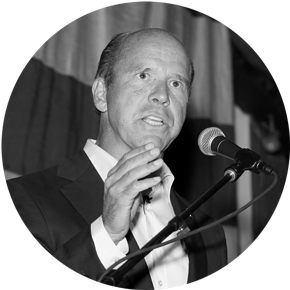
JOHN DELANEY
Who is he?
A former four-term congressman from Maryland, he might be even less known than Pete Buttigieg, who at least has a memorable name.
Is he running?
No. Delaney announced way back in June 2017, hoping that a head start could make up for his lack of name recognition, but dropped out on January 31, 2020.
Why did he want to run?
Delaney, a successful businessman, pitched himself as a centrist problem-solver.
Who wanted him to run?
Unclear. He all but moved to Iowa in hopes of locking up the first caucus state, but didn’t even crack 1 percent in a recent Des Moines Register poll.
Could he have won the nomination?
Nah.
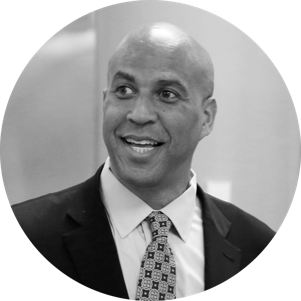
CORY BOOKER
Who is he?
A senator from New Jersey, he was previously the social-media-savvy mayor of Newark.
Is he running?
No. He launched his campaign on February 1, 2019, but dropped out on January 13, 2020.
Why did he want to run?
Once a leading moderate, Booker has been big on criminal-justice reform, including marijuana liberalization in the Senate. He also embraced progressive ideas, including Medicare for All and some sort of universal nest egg for children.
Who wanted him to run?
Not nearly enough voters. He aimed for Obama-style uplift and inspiration to attract voters, but was edged out by other candidates on both sides.
Could he have won the nomination?
Not this year.

MARIANNE WILLIAMSON
Who is she?
If you don’t know the inspirational author and speaker, you know her aphorisms (e.g., “Our deepest fear is not that we are inadequate. Our deepest fear is that we are powerful beyond measure.”).
Is she running?
No. She announced her candidacy on January 28, 2019, but left the race on January 10, 2020.
Why did she want to run?
It’s a little tough to say. She wrote on her website, “My campaign for the presidency is dedicated to this search for higher wisdom.” She criticized Hillary Clinton for coziness with corporate interests in 2016, and she ran for the U.S. House in 2014.
Who wanted her to run?
Williamson has a lot of fans, but whether they really wanted her as president was another question.
Could she have won the nomination?
Stranger things have happened, but no.
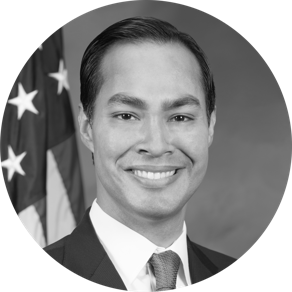
JULIÁN CASTRO
Who is he?
Castro was the mayor of San Antonio, Texas, before serving as secretary of housing and urban development under Barack Obama from 2014 to 2017.
Is he running?
No. He announced his bid on January 12, 2019, in San Antonio, but dropped out on January 2 and endorsed Elizabeth Warren on January 6.
Why did he want to run?
Castro began the career searching for an Obama-style message, but evolved into a more aggressive, left-wing candidate, especially on immigration and police reform.
Who wanted him to run?
Castro attracted a small but passionate following.
Could he have won the nomination?
No. “I am not a front-runner in this race, but I have not been a front-runner at any time in my life,” Castro said during his announcement.
What else do we know?
Castro’s twin brother, Joaquin, who serves in the U.S. House, once subbed in for his brother in a parade during Julián’s mayoral campaign, so if you go to a campaign event, ask for proof that it’s really him.
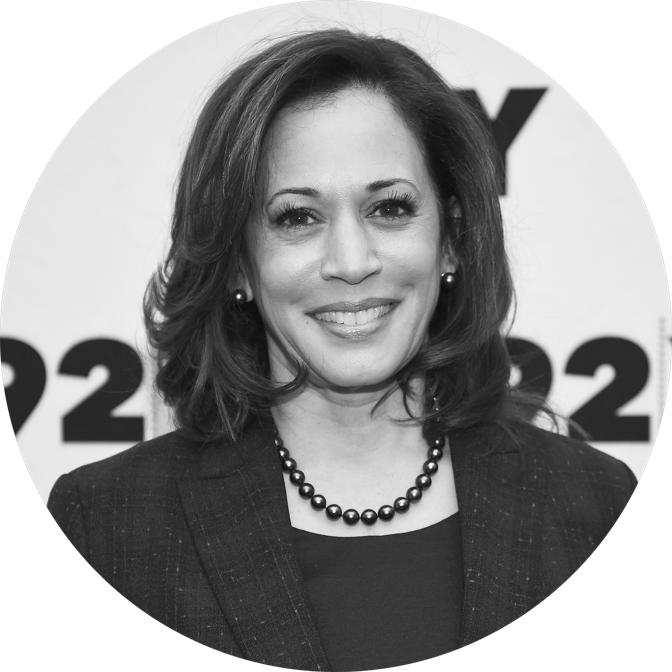
KAMALA HARRIS
Who is she?
Harris, a first-term senator from California, was elected in 2016. She was previously the state’s attorney general.
Is she running?
No. She declared her candidacy on January 21, Martin Luther King Jr. Day, but ended her campaign on December 3.
Why did she want to run?
Harris thought that a woman of color who is an ex-prosecutor would check a range of boxes for Democratic voters. She tried to stake out a broad platform, trying to appeal to a wide swath of the party, but ended up without a clear identity.
Who wanted her to run?
Harris briefly became the great hope for Democrats who weren’t strong lefties but worried about Biden. But she was unable to maintain and build her momentum, and she sank from third in the race to the single digits.
Could she have won the nomination?
Perhaps with a different campaign approach Harris would have had good luck—and she’s young enough that she may have another shot. But she didn’t have the right stuff for 2020.

STEVE BULLOCK
Who is he?
Bullock is the governor of Montana, where he won reelection in 2016 even as Trump won the state.
Is he running?
No. Bullock launched his campaign on May 14 but withdrew on December 2.
Why did he want to run?
Bullock portrayed himself as a candidate who could win in Trump country and get things done across the aisle. He’s also been an outspoken advocate of campaign-finance reform.
Who wanted him to run?
Unclear. The Great Plains and Mountain West aren’t traditional bases for national Democrats.
Could he have won the nomination?
Nope.

JOE SESTAK
Who is he?
A former vice admiral and two-term member of Congress from Pennsylvania, he twice ran for U.S. Senate.
Is he running?
No. He announced on June 23 but bowed out on December 1.
Why did he want to run?
Sestak’s announcement focused on his long career in the military and the importance of American foreign policy. It was a little evocative of retired General Wesley Clark’s 2004 campaign.
Who wanted him to run?
It’s a mystery. Sestak said he delayed a campaign launch while his daughter was treated for cancer, which is praiseworthy, but there wasn’t even a murmur about him running before his announcement. Sestak is best known these days for losing Senate races in 2010 (in the general election) and 2016 (in the Democratic primary).
Could he have won the nomination?
No.
What else do we know?
This logo, boy, I dunno.
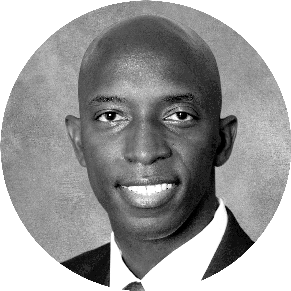
WAYNE MESSAM
Who is he?
Many people thought a young black mayor from Florida would run in 2020. They just thought it would be Tallahassee’s Andrew Gillum, not Miramar’s Wayne Messam, who was elected in 2015.
Is he running?
No. Messam announced his candidacy on March 28 but dropped out—having never showed much sign of a campaign—on November 20.
Why did he want to run?
He had a lot of standard rhetoric about the fading American dream. “The promise of America belongs to all of us,” Messam said in his announcement video. “That’s why I’m going to be running for president. To be your champion.”
Who wanted him to run?
Bueller?
Could he have won?
Sure, Messam won a national championship as a wide receiver for the 1993 Florida State Seminoles. The presidency? Um, no.

BETO O’ROURKE
Who is he?
The man, the myth, the legend, the former U.S. representative from El Paso and Democratic candidate for Senate in Texas.
Is he running?
No. O’Rourke dropped out on November 1.
Why did he want to run?
O’Rourke struggled to figure that out. After the August El Paso massacre, he announced a new approach of attacking the Trump presidency head-on.
Who wanted him to run?
A lot of live-stream watchers and thirsty tweeters, a coterie of ex–Obama aides, and a bunch of operatives running the Draft Beto campaign.
Could he have won the nomination?
No. After a fast start, O’Rourke never regained the momentum of his announcement.
What else do we know?
This video is very important.
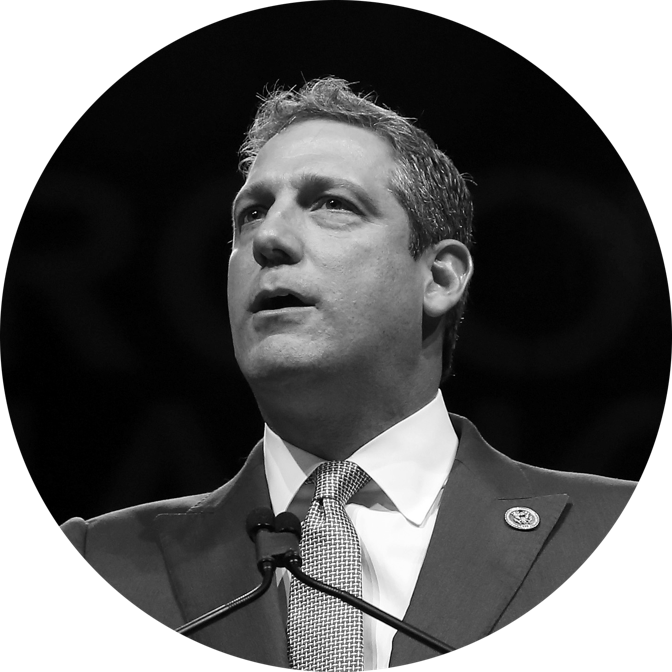
TIM RYAN
Who is he?
The Ohioan is a member of the House, representing Youngstown and America’s greatest city, Akron.
Is he running?
No. Ryan jumped in the race in April but dropped out on October 24.
Why did he want to run?
Ryan is a classic Rust Belt Democrat and friend of labor, and he’s concerned about the fate of manufacturing. He is also an outspoken critic of Democratic leadership, mounting a quixotic challenge to Nancy Pelosi in 2017.
Who wanted him to run?
Ryan had some support in the Rust Belt, but never managed to grow his national profile or support.
Could he have won the nomination?
No.
What else do we know?
He’s big on meditation.
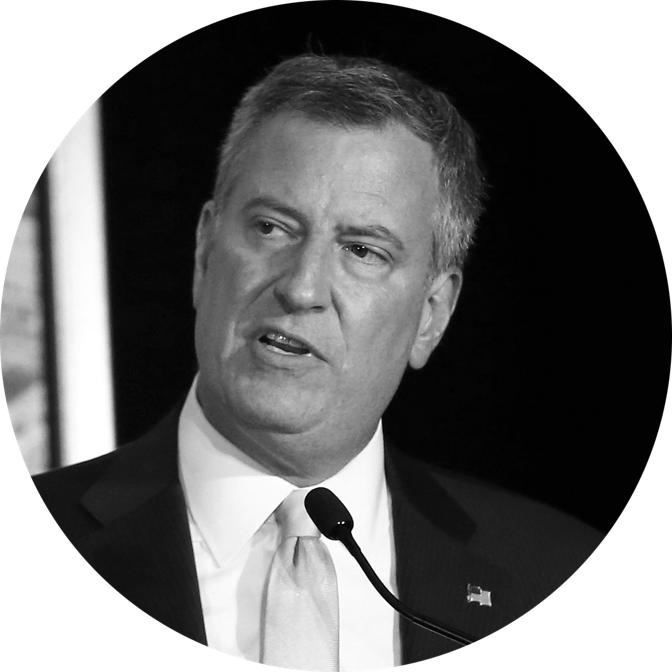
BILL DE BLASIO
Who is he?
The mayor of New York City.
Is he running?
No. He dropped out of the race on September 20.
Why did he want to run?
De Blasio was the harbinger of the Democratic Party’s leftward shift on economic issues, and they’d be at the center of his campaign, though the movement seems to have left him behind.
Who wanted him to run?
Practically no one. By the time he dropped out, de Blasio was polling at 0 percent even in New York.
Could he have won the nomination?
No.
What else do we know?
De Blasio was the tallest candidate since Bill Bradley, in 2000. Both men are 6 foot 5.
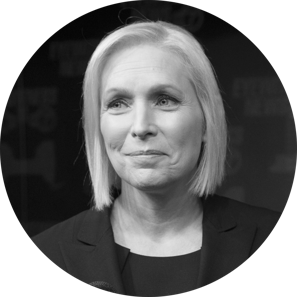
KIRSTEN GILLIBRAND
Who is she?
Gillibrand has been a senator from New York since 2009, replacing Hillary Clinton. Before that, she served in the U.S. House.
Is she running?
No. Gillibrand dropped out of the race on August 28 after failing to qualify for the third debate. She had launched her campaign officially on March 17.
Why did she want to run?
Gillibrand emphasized women’s issues, ranging from sexual harassment in the military and more recent #MeToo stories to equal pay, and her role as a mom is central in her announcement video. Once a fairly conservative Democrat, she has moved left in recent years.
Who wanted her to run?
Vanishingly few voters. While Gillibrand entered the race as a big name, she struggled to gain the polling or donors needed to stay in debates, much less make a play for the nomination.
Could she have won the nomination?
Nope.
What else do we know?
Just like you, she hated the Game of Thrones finale and is mad online about it.

SETH MOULTON
Who is he?
A third-term congressman from Massachusetts, Moulton graduated from Harvard, then served in the Marines in Iraq.
Is he running?
No. Moulton, who announced his campaign on April 22, left the race on August 23.
Why did he want to run?
In an interview with BuzzFeed, he said he felt the Democratic Party needs younger leaders and, alluding to his military career, “someone … for whom standing up to a bully like Donald Trump isn’t the biggest challenge he or she has ever faced in life.”
Who wanted him to run?
Almost no one. Moulton never gained much attraction, and some polls found him polling at precisely zero.
Could he have won?
No.
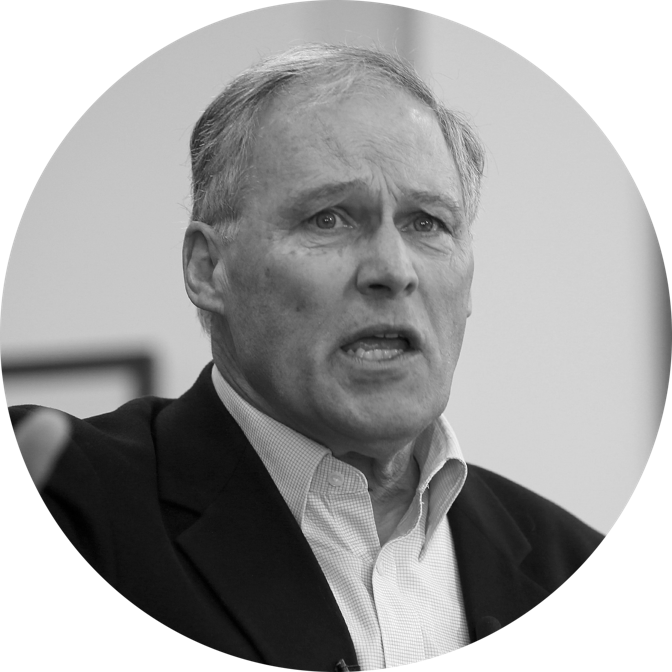
JAY INSLEE
Who is he?
Inslee is a second-term governor of Washington, and was previously in the U.S. House.
Is he running?
No. Inslee announced on August 21 that he was ending his campaign.
Why did he want to run?
Climate change. That’s been Inslee’s big issue as governor, and it will be at the center of his campaign for president, too.
Who wanted him to run?
Inslee generated excitement from climate activists, but never gained enough attention from the broad Democratic electorate to gain traction.
Could he have won the nomination?
No.

STACEY ABRAMS
Who is she?
Abrams ran unsuccessfully for governor of Georgia in 2018 and was previously the Democratic leader in the state House.
Is she running?
No. Abrams will instead focus on advocating against voter suppression, The New York Times reported on August 13. She’s likely to be mentioned as a running mate for the eventual nominee, too.
Why did she want to run?
Throughout her career, Abrams has focused on bread-and-butter issues such as criminal-justice reform and education, and since losing a 2018 election stained by problems with ballot access, she’s made voting rights a special focus.
Who wanted her to run?
Abrams has drawn excitement from young Democrats, the liberal wing of the party, and African Americans. Her rebuttal to President Trump’s 2019 State of the Union address won her new fans, and the former Obama aide Dan Pfeiffer says she should run.
Could she have won?
No.

JOHN HICKENLOOPER
Who is he?
Hickenlooper was the governor of Colorado until January, and previously held the most Colorado trifecta of jobs imaginable: mayor of Denver, geologist, and brewery owner.
Is he running?
No. Hickenlooper is leaving the race on August 15.
Why did he want to run?
Hickenlooper branded himself as an effective manager and deal maker who has governed effectively in a purple state while still staying progressive. He said he worried the Democratic field could be too focused on grievance and not enough on policy.
Who wanted him to run?
Not nearly enough people. Hickenlooper was never able to get out of the low single digits in polling, and was at precisely zero in one late poll.
Could he have won the nomination?
No.
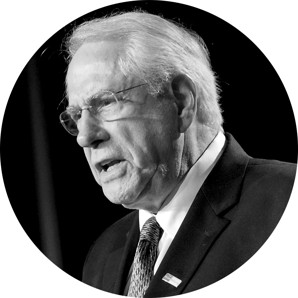
MIKE GRAVEL
Who is he?
Gravel, 89, represented Alaska for two terms in the Senate, during which he read the Pentagon Papers into the Congressional Record and fought against the Vietnam War. These days he’s probably better known for his 2008 presidential campaign.
Is he running?
No. After launching on April 8, his campaign announced it was ending on August 5, and Gravel has endorsed Bernie Sanders.
Why did he want to run?
Gravel was running to bring attention to his pet issues: direct democracy, nuclear nonproliferation, and a noninterventionist foreign policy.
Who wanted him to run?
This is where it gets weird. The committee is the brainchild of three students in college and high school who have basically created a Draft Gravel movement. But Gravel decided he liked the idea and went along with it.
Could he have won the nomination?
No. He initially said he didn’t even want to, though his campaign—worried it might be disqualified for Democratic debates—then said he was running for real. He didn't qualify anyway.
What else do we know?
Gravel produced the greatest presidential spot this side of the “Daisy” ad—and then he remade it this cycle.
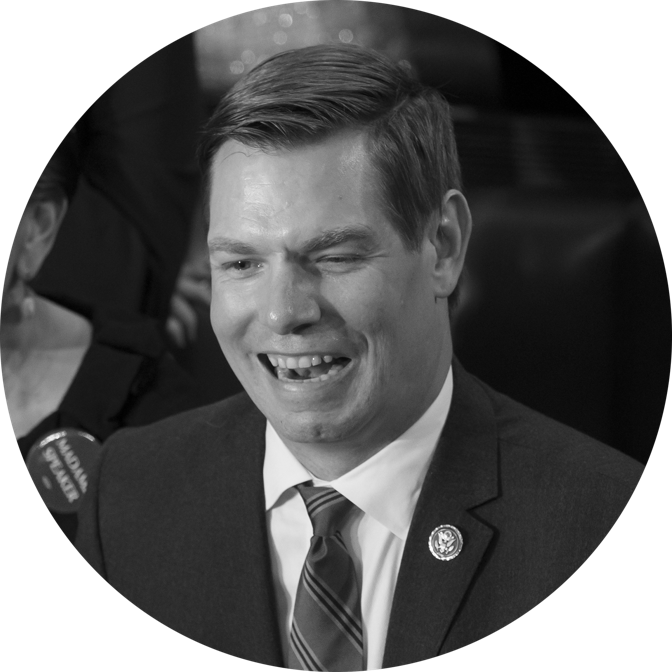
ERIC SWALWELL
Who is he?
Swalwell, who is 38, is a U.S. representative from California’s Bay Area.
Is he running?
No. Swalwell left the race on July 8, exactly three months after he announced his candidacy on The Late Show With Stephen Colbert.
Why did he want to run?
Swalwell was running on a gun-control platform. He also says the Democratic Party needs fresh blood. “We can’t count on the same old leaders to solve the same old problems,” he told The Mercury News. “It’s going to take new energy and new ideas and a new confidence to do that.”
Who wanted him to run?
Not nearly enough people. Swalwell never busted through the 1 percent threshold.
Can he have won the nomination?
Clearly not.
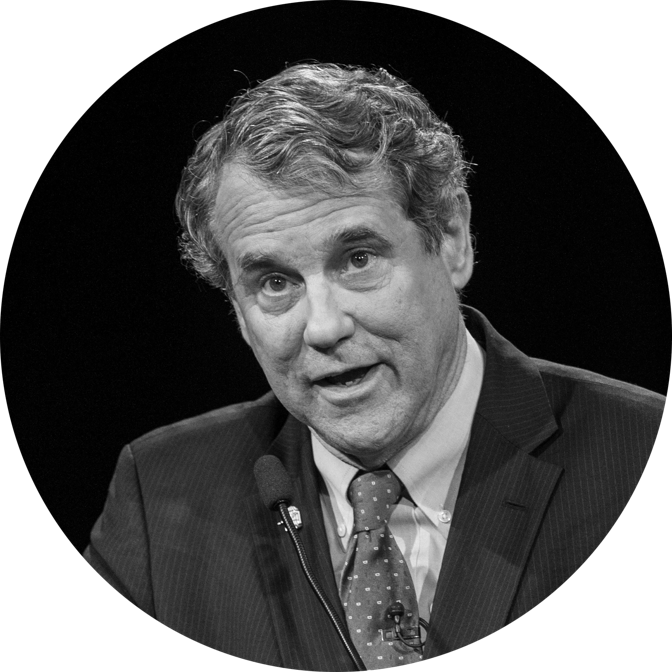
SHERROD BROWN
Who is he?
By statute, I am required to mention the senator from Ohio’s tousled hair, rumpled appearance, and gravelly voice.
Is he running?
No. Brown told the Youngstown Vindicator on March 7 that he will not run.
Why did he want to run?
Brown’s campaign would have focused on workers and inequality. He’s somewhat akin to Bernie Sanders, but his progressivism is of the midwestern, organized-labor variety.
Who wanted him to run?
Leftist Democrats who though Sanders is too old and Elizabeth Warren too weak a candidate; lots of dudes in union halls in Northeast Ohio.
Could he have won the nomination?
Possibly.
What else do we know?
Like Warren, Brown has a very good dog.

TERRY MCAULIFFE
Who is he?
Once known primarily as a close friend of Bill Clinton’s and a Democratic fundraising prodigy, McAuliffe reinvented himself as the governor of Virginia from 2014 to 2018.
Is he running?
No. McAuliffe said April 17 he wouldn’t compete.
Why did he want to run?
McAuliffe holds up his governorship as proof that he can be a problem solver and deal maker across the aisle, and his Clintonesque politics would have contrasted him with many of the candidates in the field.
Who wanted him to run?
McAuliffe himself concluded he just didn’t have a big enough constituency in the wide Democratic field.
Could he have won the nomination?
Probably not.
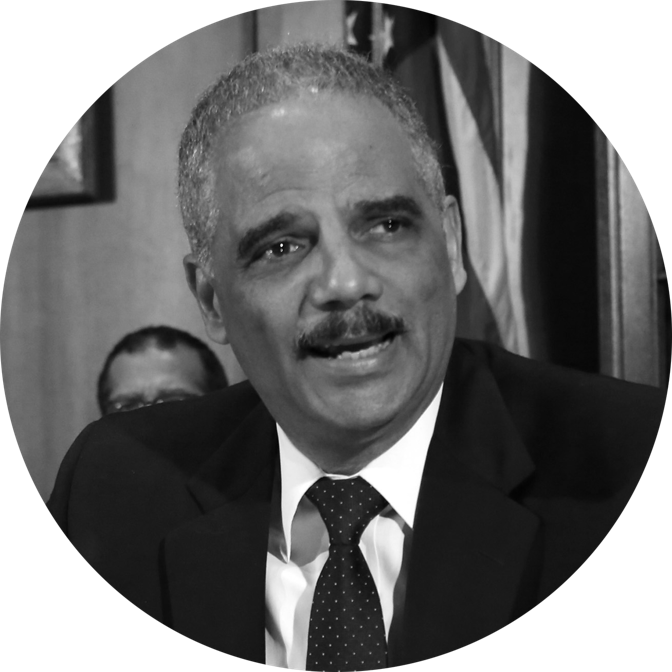
ERIC HOLDER
Who is he?
Holder was the U.S. attorney general from 2009 to 2015, and he’s currently leading a Democratic redistricting initiative with help from some retiree named Barack Obama.
Is he running?
No. After toying with the idea, he wrote in The Washington Post on March 7 that he would not run.
Why did he want to run?
Holder has three big areas of interest: redistricting, civil rights, and beating Donald Trump by all means necessary.
Who wanted him to run?
Tough to say. Obamaworld isn’t really lining up behind him, and he’s never held elected office, despite a successful Washington career.
Could he have won the nomination?
Probably not.
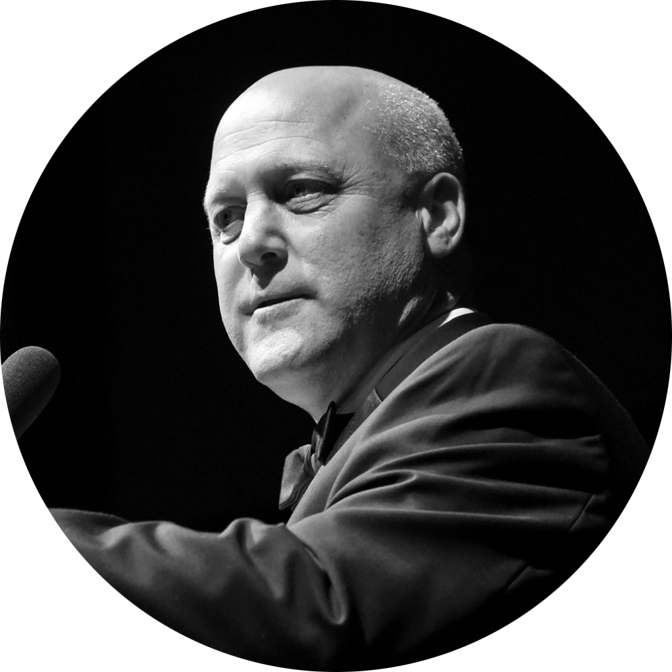
MITCH LANDRIEU
Who is he?
Landrieu served as the mayor of New Orleans from 2010 to 2018. He was previously Louisiana’s lieutenant governor.
Is he running?
It seems unlikely. “Probably not, but if I change my mind, you’re going to be the first to know,” he told the New York Times editor Dean Baquet in December.
Why did he want to run?
Like the other mayors contemplating a run, Landrieu considers himself a problem-solver. He’s also become a campaigner for racial reconciliation, taking down Confederate monuments in New Orleans, and staking a claim for progressivism in the Deep South.
Who wanted him to run?
Not clear.
Could he have won the nomination?
Probably not.

ANDREW CUOMO
Who is he?
Cuomo is the governor of New York. He was formerly the secretary of housing and urban development under Bill Clinton.
Is he running?
No. Though he's long toyed with the idea, Cuomo said in November 2018, "I am ruling it out." Then again, his father was indecisive about running for president, too.
Why did he want to run?
One can adopt a Freudian analysis related to his father's unfinished business, or one can note that Cuomo thinks he's got more management experience and success, including working with Republicans, than any Democratic candidate.
Who wanted him to run?
Practically no one. Cuomo's defenders bristle that he doesn't get enough credit, but his work with Republicans has infuriated Empire State Democrats without winning any real GOP friends.
Could he have won the nomination?
No.
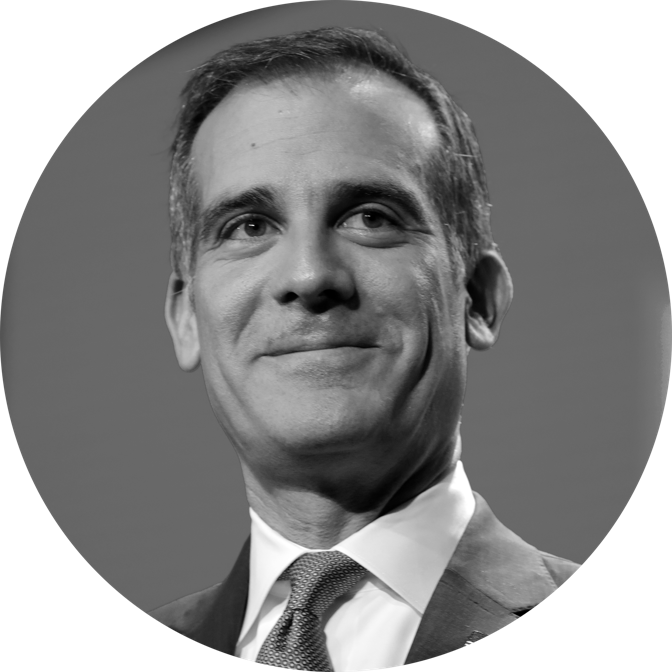
ERIC GARCETTI
Who is he?
Garcetti is the mayor of Los Angeles.
Is he running?
No. Garcetti flirted with the idea, visiting South Carolina and naming a hypothetical Cabinet full of mayors, but said on January 29 that he would not run.
Why did he want to run?
Garcetti’s pitch was that mayors actually get things done and that his lack of experience in Washington was a positive.
Who wanted him to run?
Garcetti was reelected in a landslide in 2017, but he had no apparent national constituency.
Could he have won the nomination?
Doubtful.

HILLARY CLINTON
Who is she?
Come on.
Is she running?
No, she announced on March 4 that she won’t. But until she issues a Shermanesque denial signed in blood—or the filing deadline passes—the rumors probably won’t die.
Why does she want to run?
She doesn’t.
Who wants her to run?
Pundits, mostly.
Can she win the nomination?
See above.
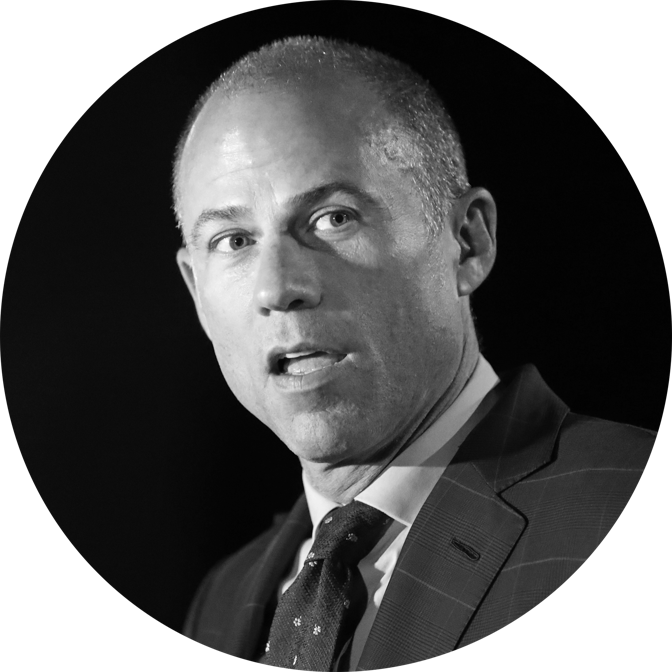
MICHAEL AVENATTI
Who is he?
Formerly Stormy Daniels’s lawyer, he’s now facing a dizzying array of federal charges.
Is he running?
Haha, no way. He now says he might once again, but he won’t. And if he does, it won’t matter.
Why did he want to run?
Attention, power, self-aggrandizement
Who wanted him to run?
Some very loud, very devoted fans.
Could he have won the nomination?
No, and his comment to Time that the nominee “better be a white male” was the final straw.
REPUBLICANS

DONALD TRUMP
Who is he?
Really?
Fine. Is he running?
Yes. He filed for reelection the day of his inauguration.
Why does he want to run?
Build the wall, Keep America Great, etc.
Who wants him to run?
Consistently about 35 to 40 percent of the country; a small majority consistently says he should not.
Can he win the nomination?
Yes. While his low approval ratings overall have stoked talk of a primary challenge, Trump remains very popular among Republican voters, and as president has broad power to muscle the GOP process to protect himself.
What else do we know?
You may have heard that in December 2019 he became the third president to ever be impeached.
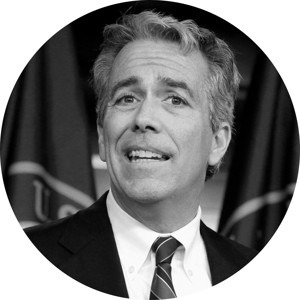
JOE WALSH
Who is he?
After a strong run in the James Gang, Walsh joined the Eagles as lead guitari—wait, no, wrong guy. This Joe Walsh was a Tea Party congressman from Illinois from 2011 to 2013.
Is he running?
Yes. Walsh said on August 24 that he will run against Trump.
Why is he running?
Once a strong Trump backer, Walsh has undergone a strange political transformation over the last three years and now routinely attacks Trump, who he sees as insufficiently conservative and too deferential to Russia.
Who wants him to run?
There are still some Republicans dead-set against Trump, though vanishingly few. One, the tireless but hapless Bill Kristol encouraged Walsh to run. A Walsh candidacy would perhaps give never-Trumpers someone to vote for in the primary and potentially a way of weakening the president ahead of the 2020 general election.
Can he win the nomination?
Absolutely not.

WILLIAM WELD
Who is he?
Weld, a former Justice Department official, was the governor of Massachusetts from 1991 to 1997 and was the Libertarian Party’s vice-presidential nominee in 2016.
Is he running?
Yes. Weld officially launched his campaign April 15.
Why is he running?
Calling President Trump “unstable,” Weld has said, “I think our country is in grave peril and I cannot sit any longer quietly on the sidelines.”
Who wants him to run?
Weld always inspired respect from certain quarters, and the 2016 Libertarian ticket did well by the party’s standards, but Weld’s unorthodox politics and hot-and-cold relationship with the GOP probably don’t help his support.
Can he win the nomination?
No.
What else do we know?
This logo is so cool.
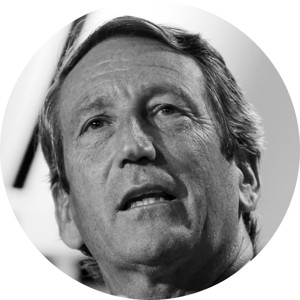
MARK SANFORD
Who is he?
Sanford was governor of South Carolina from 2003 to 2011 and a U.S. representative from 1995 to 2001 and 2013 to 2019.
Is he running?
No. Sanford announced his campaign launch on September 8 but suspended it on November 12.
Why was he running?
Sanford has been an outspoken critic of Donald Trump. “I think we have to have a conversation about what it means to be a Republican,” Sanford said on Fox News Sunday, adding that the GOP “has lost our way.”
Who wanted him to run?
Lots of reporters who are eager to make bad Appalachian Trail jokes. There must have been some Never Trump fiscal conservatives who didn’t want Trump but wouldn’t vote for Weld. Not many, though.
Could he have won the nomination?
No. “I don’t think on the Republican side there’s any appetite for a serious nuanced debate with impeachment in the air,” he said as he left the race.
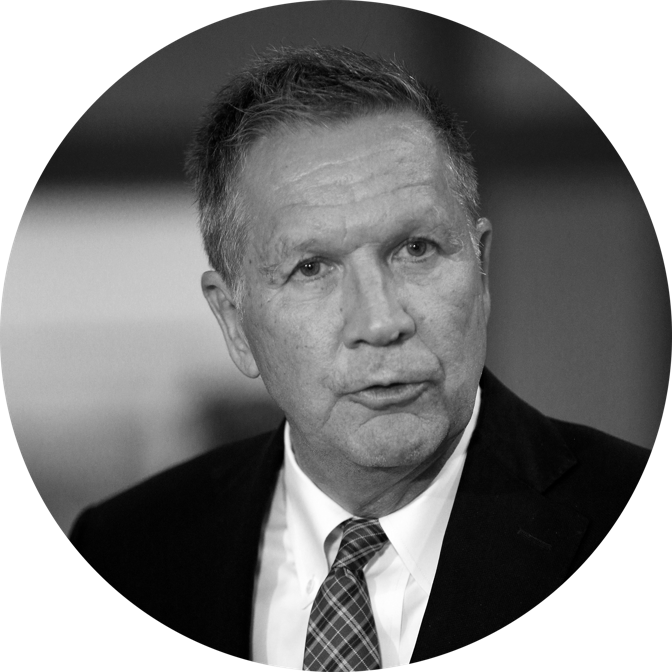
JOHN KASICH
Who is he?
Kasich recently finished up two terms as governor of Ohio, previously served in the U.S. House, and ran in the 2016 GOP primary.
Is he running?
No, and it seems he won't. “There is no path right now for me. I don't see a way to get there,” he said May 30. “I've never gotten involved in a political race where I didn't think I could win.”
Why did he want to run?
Kasich has long wanted to be president—he ran, quixotically, in 2000. But Kasich has styled himself as a vocal Trump critic, and sees himself as an alternative to the president who is both truer to conservative principles and more reliable and moral.
Who wanted him to run?
Maybe some dead-end never-Trump conservatives. It’s tough to say.
Could he have won the nomination?
Even he doesn’t think so. Kasich previously ruled out an independent or third-party run, but has since reopened that door.
What else do we know?
John Kasich bought a Roots CD and hated it so much, he threw it out his car window. John Kasich hated the Coen brothers’ classic Fargo so much, he tried to get his local Blockbuster to quit renting it. George Will laughed at him. John Kasich is the Bill Brasky of philistinism, but John Kasich probably hated that skit, too.

LARRY HOGAN
Who is he?
In November, Hogan became the first Republican to be reelected as governor of Maryland since 1954.
Is he running?
No. After some flirtation, he ruled out a run on June 1.
Why did he want to run?
Hogan is a pragmatic, moderate Republican who has won widespread acclaim in a solidly Democratic state—in other words, everything Trump is not.
Who wanted him to run?
Never-Trump conservatives; whatever the Republican equivalent of a “good government” type is.
Could he have won the nomination?
As long as Trump was running, no.
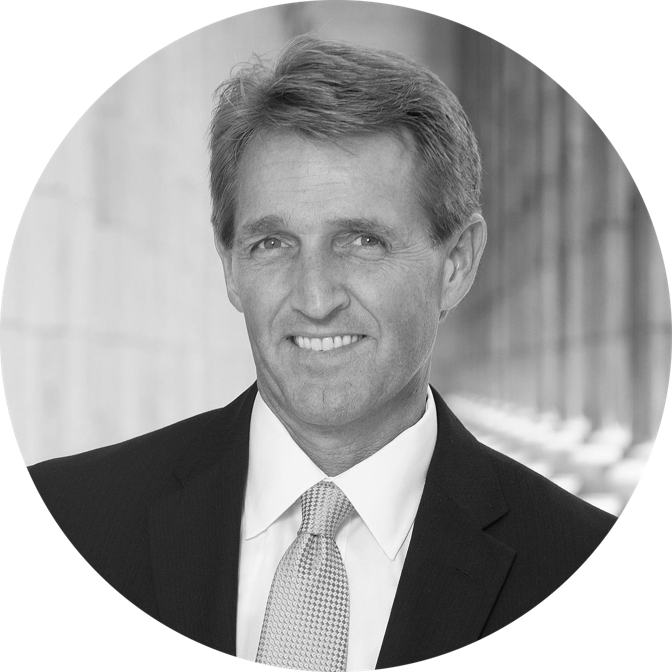
JEFF FLAKE
Who is he?
The Arizonan, a former U.S. House member, decided not to run for reelection to the Senate in 2019.
Is he running?
No. When he took a contributor role with CBS on January 23, he said he was not running.
Why did he want to run?
Starting in 2016, Flake was perhaps Trump’s most outspoken critic among elected Republicans, lambasting the president as immoral, unserious, and unconservative.
Who wanted him to run?
Liberal pundits.
Could he have won the nomination?
No. Flake retired because he didn’t even think he could win the Republican Senate nomination.
THIRD PARTIES AND INDEPENDENTS
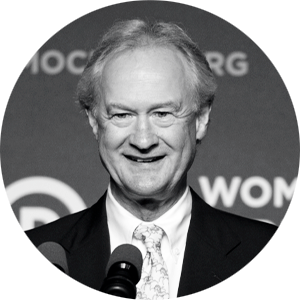
LINCOLN CHAFEE
Who is he?
The failson scion of a Rhode Island Republican family, Chafee served in the Senate as a Republican (1999-2007); as governor, as an independent and then a Democrat (2011-2015); and then ran for president as a Democrat in 2016.
Is he running?
Yes. He filed papers to run for the Libertarian Party nomination on January 5.
Why does he want to run?
It’s time to go metric, baby.
Who wants him to run?
¯\_(ツ)_/¯
Can he win the nomination?
Hard to say. Chafee has become a bit of a joke nationally, but he’s the highest profile candidate to file for the Libertarian nomination so far, so maybe.
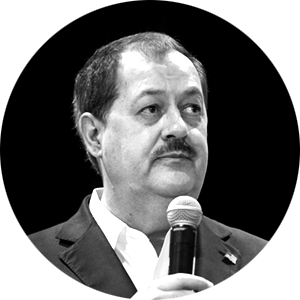
DON BLANKENSHIP
Who is he?
The former CEO of the coal company Massey Energy, Blankenship was convicted of conspiracy to violate mine-safety laws over an explosion that killed 29 miners in 2010. He ran for U.S. Senate in West Virginia in 2018.
Is he running?
Yes. Blankenship announced on November 11 that he’s running for the Constitution Party’s nomination.
Why does he want to run?
Blankenship is billing himself as a man who can actually do what Trump promised. The men share many political views as well as a general coarseness and bigotry. “President Trump means well, but he simply cannot get it done because he is too busy mending his self-inflicted wounds and tripping over his ego,” Blankenship said in a statement.
Who wants him to run?
Beats us.
Can he win the nomination?
Oh, who knows? Third-party nominations are often unpredictable and/or not seriously contested.
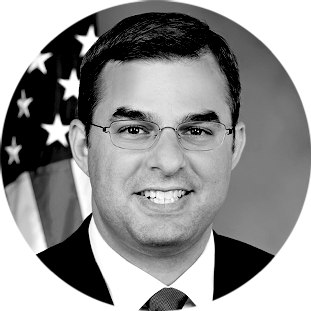
JUSTIN AMASH
Who is he?
Amash has represented a Grand Rapids, Michigan-area seat in the U.S. House since 2011.
Is he running?
Not yet, but Libertarian Party members are lobbying him to get in, and he says he’s thinking about it.
Why does he want to run?
Amash has cut a path as a strong libertarian in the House, especially in recent months as a critic of President Trump. On July 4, he announced he was leaving the Republican Party, feeding presidential speculation.
Who wants him to run?
Libertarians, duh. “There’s a lot of people who consider Amash to be the best congressman from the perspective of a Libertarian," Libertarian Party Chairman Nicholas Sarwark told MLive. “They think he’s the best congressman for our goals since Ron Paul.”
Can he win the nomination?
Yes.
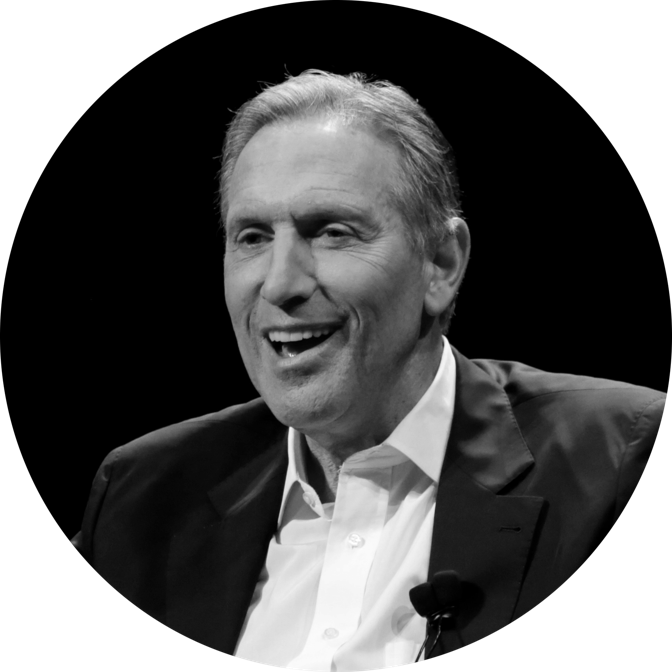
HOWARD SCHULTZ
Who is he?
That guy who used to sell you over-roasted coffee. Schultz stepped down as CEO of Starbucks in 2018.
Is he running?
No. Schultz officially ruled out a run on September 6, roughly four months after laying off most of his staff and announcing he’d take the summer off due to health problems. “I have concluded that an independent campaign for the White House is not how I can best serve our country at this time,” he wrote in a message.
Why did he want to run?
Personal pique over Representative Alexandria Ocasio-Cortez’s support for a 70 percent marginal tax rate. No, seriously. Schultz has offered some vague platitudes about centrist ideas and bringing the country together, but most of it aligns with standard Democratic positions.
Who wanted him to run?
Donald Trump.
Can he have won the nomination?
The great thing about being a billionaire self-funder as an independent is that you don’t have to win a nomination. The downside is that you still have to win votes eventually.

JOHN MCAFEE
Who is he?
He's the guy who made your antivirus program-turned-international fugitive-turned-unsuccessful 2016 Libertarian presidential candidate. A typical politician, basically.
Is he running?
He says he's going to either vie for the Libertarian nomination again or run as an independent, though it's probably worth regarding what he says with some skepticism.
Why does he want to run?
To promote cryptocurrency, brah. “See, I don’t want to be president,” he told a crypto trade publication in November 2018. “I couldn’t be ... no one’s going to elect me president, please God. However, I’ve got the right to run.”
Who wants him to run?
Rubberneckers, disaster enthusiasts.
Can he win the nomination?
“No one’s going to elect me president, please God.”
What else do we know?
You want to see what it's like as the opposite sex for three hours? What being kissed by God feels like? You want the infinite experience of freedom? Knowledge of yourself? Eroticism that incinerates you? A simple good time? Forgetfulness? He's your man.